How I Made Partner: Morgan, Lewis & Bockius' Terry Johnson
"At the end of the day, a law firm is a business. And with the rapidly changing legal landscape, law firms have to constantly be thinking of strategic and innovative ways to keep up with the times, and, in fact, to stay ahead of the curve."
June 25, 2019 at 11:59 AM
6 minute read
Terry Johnson, 40, Morgan, Lewis & Bockius
Office: Princeton, New Jersey.
Practice area: Labor and employment.
Law school and year of graduation: Rutgers University School of Law, Newark, 2004.
How long have you been at the firm? Since January 2011.
How long were you an associate at the firm? Nearly six years.
Were you an associate at another firm before joining your present firm? Yes. At Reed Smith (one year, 2005 to 2006); Dechert (three years, 2006 to 2009); Blank Rome (one year, 2010)—all in Princeton.
What year did you make partner at your current firm? October 2016.
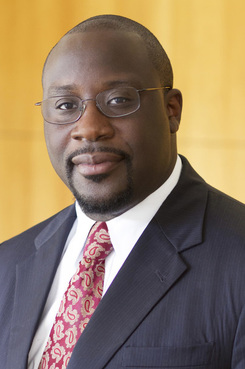 Terry Johnson, Morgan, Lewis & Bockius.
Terry Johnson, Morgan, Lewis & Bockius.What's the biggest surprise you experienced in becoming partner? Honestly, there were no real surprises about becoming a partner at Morgan Lewis. My mentors, and the firm in general, did an excellent job in helping me with the transition from associate to partner. We even recently created a full-time, in-house director of attorney coaching position to help navigate the path. So transitioning from associate to partner was not the daunting challenge that one might expect in a large international law firm. If anything, my partners have gone out of their way to help ensure my success as I continue to grow and develop my practice.
What do you think was the deciding point for the firm in making you partner? Just being a good lawyer is usually not enough. In my years at the firm, I have known many good lawyers who did not make partner. During the partnership process, I also had to demonstrate the ability to raise my profile within the legal community, the skills to maintain and grow client relationships, and the potential to develop business. At the end of the day, a law firm is a business. And with the rapidly changing legal landscape, law firms have to constantly be thinking of strategic and innovative ways to keep up with the times, and, in fact, to stay ahead of the curve. The best partners are those strategic and innovative thinkers.
Describe how you feel now about your career now that you've made partner. Some people view making partner as a final destination, as if they have “arrived.” I do not see it that way at all. For me, making partner in 2016 was essentially a new beginning. It is not enough for me to rest on the fact that I have “made it” or feel that I am owed anything. Now, more than ever, is the time for me to work hard and fully engage in the business of the law.
What's the key to successful business development in your opinion? In my opinion, the key to developing business boils down to one thing—relationships. In my experience, there are two types of business development opportunities at big law firms like Morgan Lewis—internal client development and external client development. One way for new partners like myself to grow their practice is to find ways to collaborate with other partners and offer my expertise to service the firm's existing clients. I was fortunate enough to have partners across the United States personally introduce me to clients where I may be able to help them with employment litigation matters. This internal collaboration has continued to grow over the last three years. External client development is more of a process of leveraging business opportunities to seek out new client relationships. I have personally gone about this in a variety of ways, including presenting CLE webinars, speaking at industry-specific conferences, attending networking events, and remaining a resource for contacts that I have made over the years.
What's been the biggest change, day-to-day, in your routine since becoming partner? For me, the changes in my day-to-day routine have not been very dramatic. I pretty much still work on the same types of matters—a broad range of single- and multi-plaintiff discrimination, harassment and retaliation cases in state and federal courts throughout the country. Of course, becoming a partner, the number of clients I work with has grown substantially. The biggest change is probably an increase in my administrative responsibilities or “non-billable work.” This primarily includes addressing client maintenance issues and reviewing billing invoices. I also try to spend as much time as possible mentoring other attorneys who aspire to be a partner—particularly African American lawyers. It is no secret that less than 2% of partners in law firms are black. What I have experienced myself and learned from others is that it is critically important that black lawyers see someone who looks like them who has become a partner. That inspires hope and confidence that there are no “glass ceilings” and that partnership is a goal that can actually be achieved.
Who had the greatest influence in your career that helped propel you to partner? Please provide name, job title and a brief explanation. This is an easy question to answer. By far, the greatest influence on my path to partnership was Grace Speights, the leader of Morgan Lewis's labor and employment practice. Grace is an outstanding employment lawyer and one of the best lawyers in the country. From the beginning, Grace took a vested interest in my career, and although she is resident in our Washington, D.C., office, she consistently made herself available to mentor and guide me as a young lawyer. Grace also sought out opportunities to introduce me to key clients and for us to work together on important matters. For instance, in January 2017, Grace and I successfully tried a race discrimination case to verdict in the Southern District of New York. I appreciated the opportunity to work closely with and learn from such a seasoned trial lawyer. I could go on for days how Grace has and continues to be a critical resource for me.
What's the best piece of advice you could give an associate who wants to make partner? My best advice for associates who want to make partner is to passionately pursue excellence. There simply is no substitute to putting in the work and becoming the best at what you do. I always say that stars are not born, they are made. But at the same time, I caution associates pursuing partnership to not lose themselves in the process. It is important to focus on wellness and leading a balanced life. While work is demanding, and we all have busy lives outside of work, we have to do our best to stay grounded in those things that make us who we are. For me, that has been my faith and my family.
Got a suggestion for a lawyer to profile in this column? Email [email protected].
This content has been archived. It is available through our partners, LexisNexis® and Bloomberg Law.
To view this content, please continue to their sites.
Not a Lexis Subscriber?
Subscribe Now
Not a Bloomberg Law Subscriber?
Subscribe Now
NOT FOR REPRINT
© 2025 ALM Global, LLC, All Rights Reserved. Request academic re-use from www.copyright.com. All other uses, submit a request to [email protected]. For more information visit Asset & Logo Licensing.
You Might Like
View All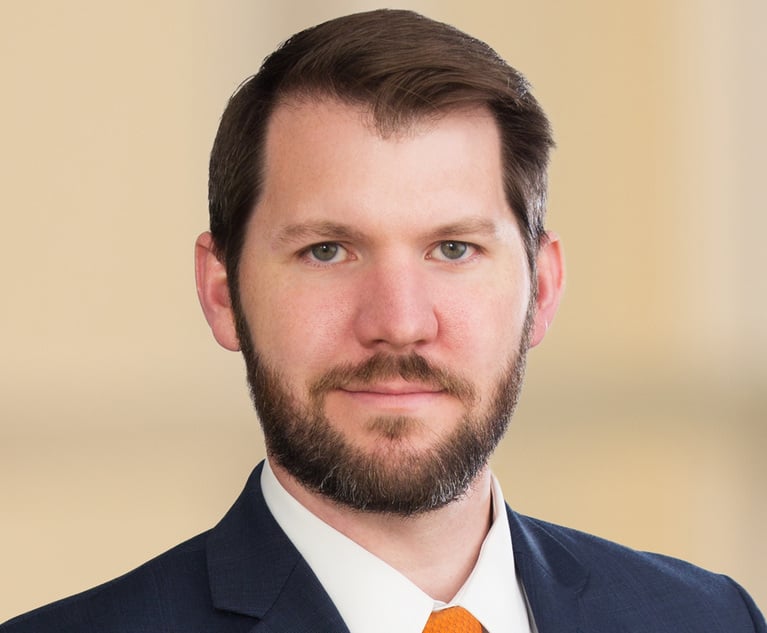
How I Made Office Managing Partner: 'Don’t Be an Opportunity Killer,' Says Thomas Haskins of Barnes & Thornburg
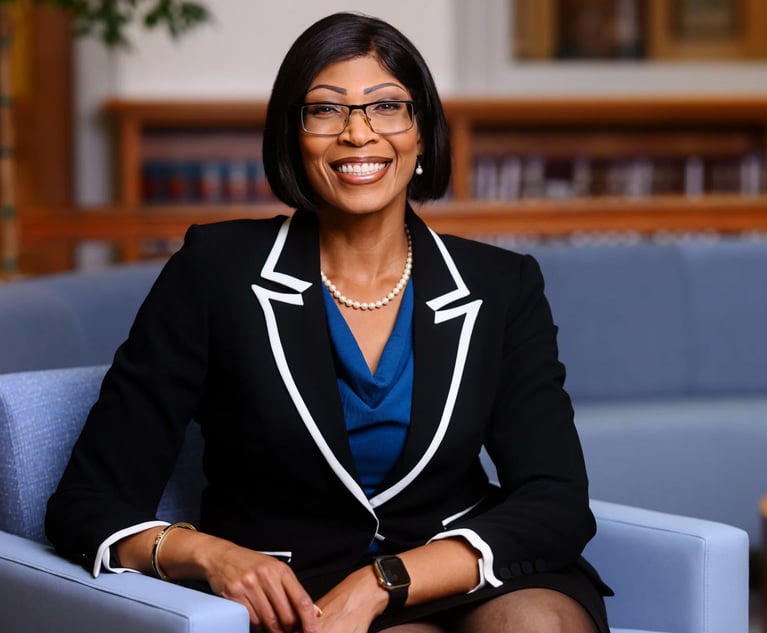
Retention, Development and 'Empowering Teams': This Am Law 200 Firm's Newest Practice Leader Says Objectives Haven't Changed
6 minute read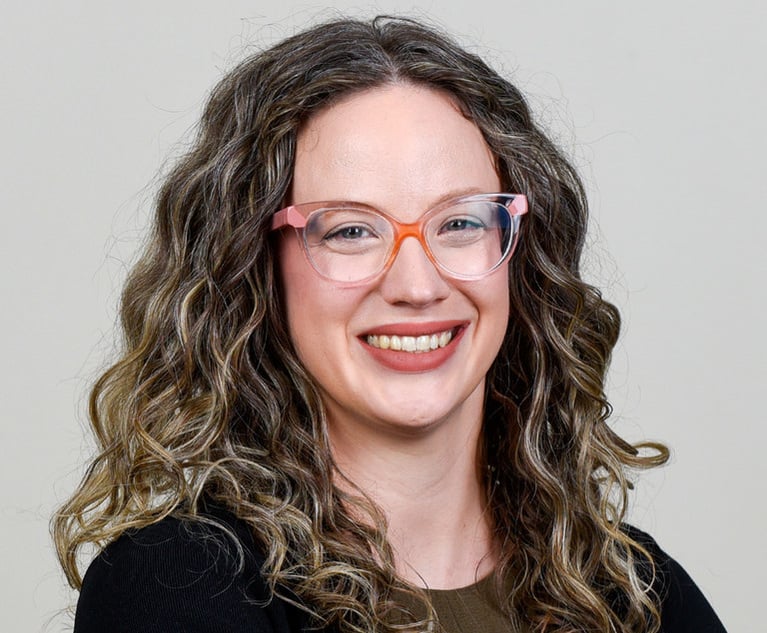
How I Made Partner: 'Take Every Opportunity to Get Involved in the Business Side of the Firm,' Says Alyssa Domzal of Ballard Spahr
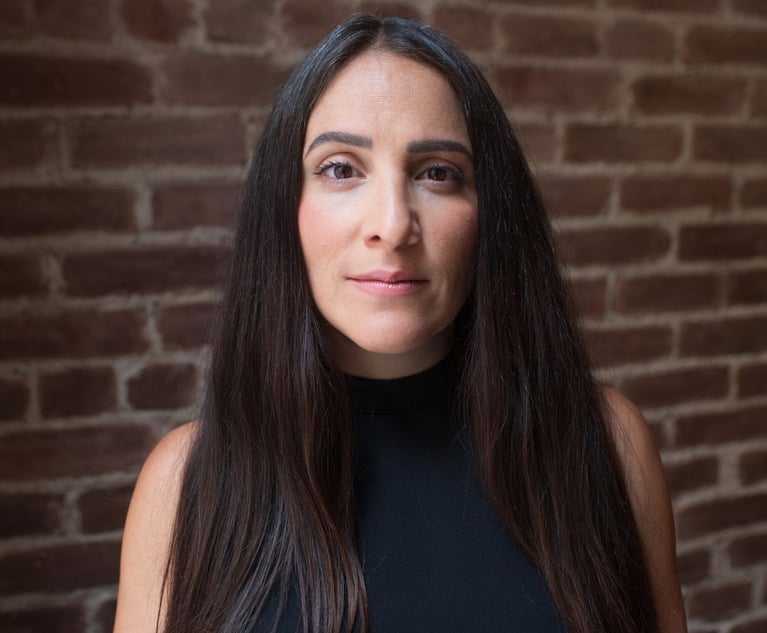
How I Made Practice Group Chair: 'Cultivating a Culture of Mutual Trust Is Essential,' Says Gina Piazza of Tarter Krinsky & Drogin
Trending Stories
- 1Big Law's Middle East Bet: Will It Pay Off?
- 2'Translate Across Disciplines': Paul Hastings’ New Tech Transactions Leader
- 3Milbank’s Revenue and Profits Surge Following Demand Increases Across the Board
- 4Fourth Quarter Growth in Demand and Worked Rates Coincided with Countercyclical Dip, New Report Indicates
- 5Public Notices/Calendars
Who Got The Work
J. Brugh Lower of Gibbons has entered an appearance for industrial equipment supplier Devco Corporation in a pending trademark infringement lawsuit. The suit, accusing the defendant of selling knock-off Graco products, was filed Dec. 18 in New Jersey District Court by Rivkin Radler on behalf of Graco Inc. and Graco Minnesota. The case, assigned to U.S. District Judge Zahid N. Quraishi, is 3:24-cv-11294, Graco Inc. et al v. Devco Corporation.
Who Got The Work
Rebecca Maller-Stein and Kent A. Yalowitz of Arnold & Porter Kaye Scholer have entered their appearances for Hanaco Venture Capital and its executives, Lior Prosor and David Frankel, in a pending securities lawsuit. The action, filed on Dec. 24 in New York Southern District Court by Zell, Aron & Co. on behalf of Goldeneye Advisors, accuses the defendants of negligently and fraudulently managing the plaintiff's $1 million investment. The case, assigned to U.S. District Judge Vernon S. Broderick, is 1:24-cv-09918, Goldeneye Advisors, LLC v. Hanaco Venture Capital, Ltd. et al.
Who Got The Work
Attorneys from A&O Shearman has stepped in as defense counsel for Toronto-Dominion Bank and other defendants in a pending securities class action. The suit, filed Dec. 11 in New York Southern District Court by Bleichmar Fonti & Auld, accuses the defendants of concealing the bank's 'pervasive' deficiencies in regards to its compliance with the Bank Secrecy Act and the quality of its anti-money laundering controls. The case, assigned to U.S. District Judge Arun Subramanian, is 1:24-cv-09445, Gonzalez v. The Toronto-Dominion Bank et al.
Who Got The Work
Crown Castle International, a Pennsylvania company providing shared communications infrastructure, has turned to Luke D. Wolf of Gordon Rees Scully Mansukhani to fend off a pending breach-of-contract lawsuit. The court action, filed Nov. 25 in Michigan Eastern District Court by Hooper Hathaway PC on behalf of The Town Residences LLC, accuses Crown Castle of failing to transfer approximately $30,000 in utility payments from T-Mobile in breach of a roof-top lease and assignment agreement. The case, assigned to U.S. District Judge Susan K. Declercq, is 2:24-cv-13131, The Town Residences LLC v. T-Mobile US, Inc. et al.
Who Got The Work
Wilfred P. Coronato and Daniel M. Schwartz of McCarter & English have stepped in as defense counsel to Electrolux Home Products Inc. in a pending product liability lawsuit. The court action, filed Nov. 26 in New York Eastern District Court by Poulos Lopiccolo PC and Nagel Rice LLP on behalf of David Stern, alleges that the defendant's refrigerators’ drawers and shelving repeatedly break and fall apart within months after purchase. The case, assigned to U.S. District Judge Joan M. Azrack, is 2:24-cv-08204, Stern v. Electrolux Home Products, Inc.
Featured Firms
Law Offices of Gary Martin Hays & Associates, P.C.
(470) 294-1674
Law Offices of Mark E. Salomone
(857) 444-6468
Smith & Hassler
(713) 739-1250









